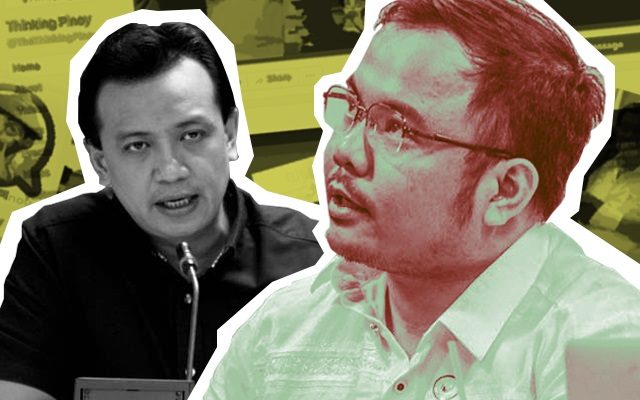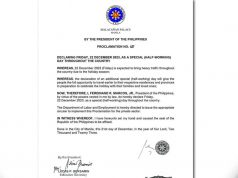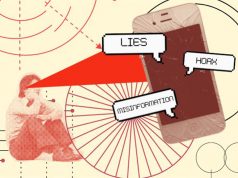
To those who are not exactly a fan of blog “Thinking Pinoy,” the indictment of page runner RJ Nieto may seem like a win, but even for some who do not agree with his views, the libel case poses a threat on the right on free speech.
'Thinking Pinoy' blogger RJ Nieto indicted for libel
Next in line Mocha
Freedom of speech has limits if what you always spread are lies !!
— China Rich Girlfriend (@EggTarTisYummy) June 30, 2018
Some distinguished this particular case—that tags someone a criminal over his opinions—from the reputation of Nieto as a popular social media user who cleverly puts a slant on events and issues in order defend President Rodrigo Duterte and depart from news reports.
Militant Senator Antonio Trillañes has decided to file a case of "on line libel" against blogger RJ Nieto. While this may sound all nice and dandy to some. I'm curious about a few things?
1. How does one prosecute opinion?
2. How does one prove ones presence at the keyboard?
— Jacques Phillip (@JPPhotographs) June 30, 2018
“Citizen Jane,” a blogger from the other side of the political fence wrote:
“Should [Nieto] be jailed for libel? NO. We have long been calling for libel to be downgraded from criminal to civil liability…
“Are you defending Nieto? NO. He should be held liable if found to be spreading falsehoods with malicious intent. However, a punitive law can potentially be applied to both friend and foe. It may be Nieto now. It could be you or I tomorrow.”
What went before
Nieto, a staunch supporter Duterte who is the political foe of Senator Antonio Trillanes IV, reposted and commented on a questionable Pilipino Star Ngayon column in October 2017.
Nieto’s post and the opinion article alleged that US President Donald Trump called Trillanes a “little narco” or a small-time drug lord. It was false information, and Trillanes responded with a libel case against blogger.
Unlike Nieto, the author of the column, Pilipino Star Ngayon editor Al Pedroche, had already apologized for not verifying his claims at that time.
Earlier this month, the opposition senator’s complaint under the Cybercrime Prevention Act progressed, with the Pasay court finding probable cause to accuse Nieto of libel. The crime could potentially throw him in jail and make him settle damages of at least P2 million.
When is free speech being abused?
Filipinos are given this right as stated in Section 4 of the Bill of Rights of the 1987 Constitution, wherein
“No law shall be passed abridging the freedom of speech, of expression, or of the press, or the right of the people peaceably to assemble and petition the government for redress of grievances.”
Traditional limits to free speech are considered to be abuses using language that basically violates ethical principles and other people’s rights. These are:
- False statements of fact such as in defaming another person knowingly
- Pornography
- Perjury
- Blackmail
- Incitement to imminent lawless action, or the urging of others to commit a crime likely done soon
- True threats, or a threat interpreted as real and serious in exposing a victim to harm
While Nieto is clearly not a journalist, online bloggers are expected to follow ethical guidelines in their posts given the influence their work has on readers.
The Bloggers’ Code of Ethics urge online content creators to “be honest and fair in gathering, reporting and interpreting information.”
They should also be sensitive to those who will be affected with their content, noting that “pursuit of information is not a license for arrogance.”
Moreover, bloggers should also be accountable of their mistakes and be responsible in finding ways to correct any “conflict” they have caused.









